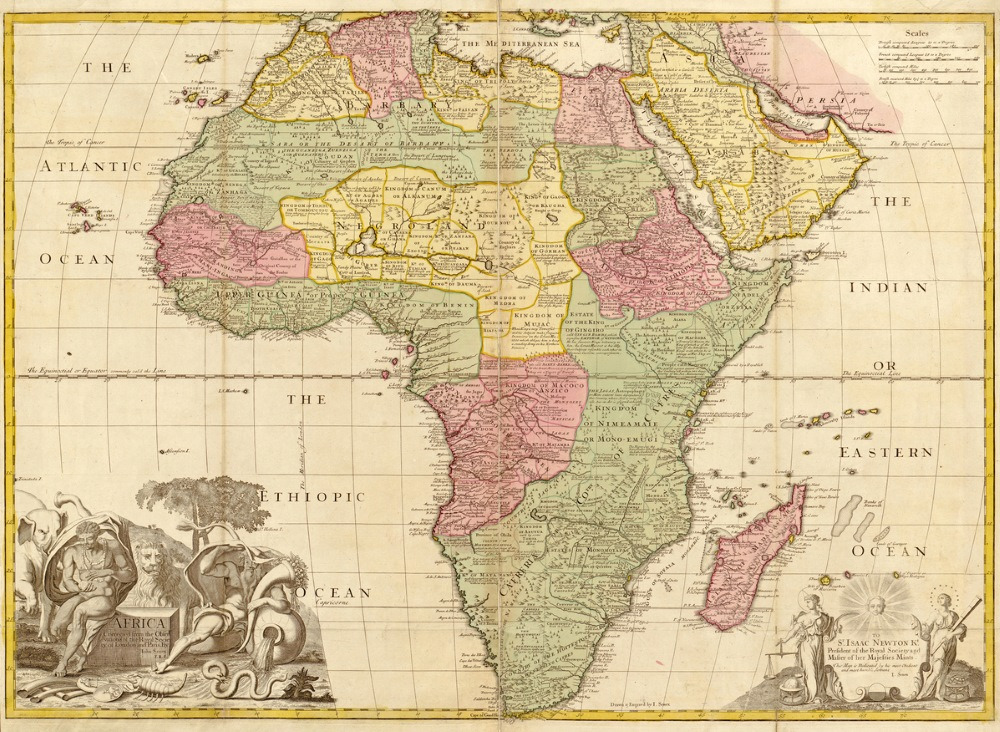
Source Gatestone Institute
NEW YORK, US: "Reset!" That was the magic word often used during US Secretary of State Antony Blinken's first visit to Africa, with the message that "years of neglect" under the Trump administration were over and that the Biden presidency would see a new golden dawn in US relations with the turbulent continent. At the time, few people remembered that Hillary Clinton had used the "reset" cliché about US-Russia relations during the first Obama administration.
But if it took Clinton's reset ten years to prove to be a dangerous illusion, Blinken's reset has turned out to be another monumental gaffe within less than two years. To be sure, the Biden administration did the usual diplomatic charade by organizing a US-Africa summit, providing countless photo-ops coupled with fantastic promises. Washington went even further by sending an expeditionary force to Niger to wipe out "terrorist groups" in the Sahel with the help of French and other European Union forces.
Since then, however, the "reset" has worked against the strategic interests of the US and its European allies. Four of the Sahel countries have experienced military coups that have brought anti-West generals, their chests covered with sundry medals, to power.
If seasoned Africa-watchers are right, at least eight other nations in the continent may also experience military coups within the next year or two.
The current United Nations General Assembly session, held in New York, has turned the flashlights on Africa as the latest scene of big power rivalry with China, Russia, France and the US and, on a smaller scale Turkey, trying to expand their influence or at least protect what influence they already have.
Today, Africa is no longer a mere object in its own history. Two generations after independence -- an independence marked by many failures and yet inspiring pride and hope among Africans -- it is no longer possible for "big powers" to play the game according to their own rules. Africa today is seen both as a threat and a promise.
The promise comes from Africa's immense and largely untapped natural resources. The continent accounts for around 16 percent of the world's population but has some 60 percent of the arable land on the planet.
And, yet, at least 14 of the continent's 56 nations are only months away from famine, according to the World Food Program, while 30 others suffer shortages and chronic hunger. In many cases, the cash crop economy, supplying what the rich nations want, prevents the production of staple foods for the locals.
Africa's immense mineral resources, including some of the rarest and most coveted, are arousing as much, if not more, appetite for colonial domination, albeit in new forms including long-term contracts, loans part of which end up in few pockets and, of course, token military forces in more than two dozen countries.
The trouble is that while "big powers" have built a big appetite for African resources, none of them has the clout, or let's say the teeth, necessary to impose a neo-colonial agenda on the continent. Both China and Russia, newcomers to the Great Game, lack the knowledge, the network of connections and the politico-cultural sex-appeal without which any imperialist or neo-imperialist scheme could succeed.
The European countries, especially Britain and France, that still enjoy such advantages are hampered by the fact that their public opinions are not interested in, not to say hostile to, any special relations with the "black continent". As for the US, it seems so mired in its own cultural-political civil war that few might wish to rely on it as a long-term ally and/or partner.
The idea of a big conference on Africa is a non-starter. Not only will it set alarms ringing about neo-colonialism, but it is also unlikely to win popular support within the continent and beyond without which the best laid plans are sure to go awry. More importantly, perhaps, African nations have too many bilateral and multilateral problems of their own to be able to present a united front in any international "reset".
Africa today consists of 56 different experiences in nation-building with some remarkable successes and many inevitable failures. In many African countries a new player has entered the game: a younger generation that is better educated, more ambitious and, at the same time, less gullible than its ancestors in the 19th century who looked away while imperial powers carved the golden goose.
With a one-size-fits-all scheme being out of the question, maybe the best way to "reset" relations with Africa is on a bilateral basis. As the nation-state is making a comeback even in old Europe, there is no reason why it should not be seen as the best vehicle for redefining Africa's role in reshaping the global system.




0 Comments
LEAVE A REPLY
Your email address will not be published